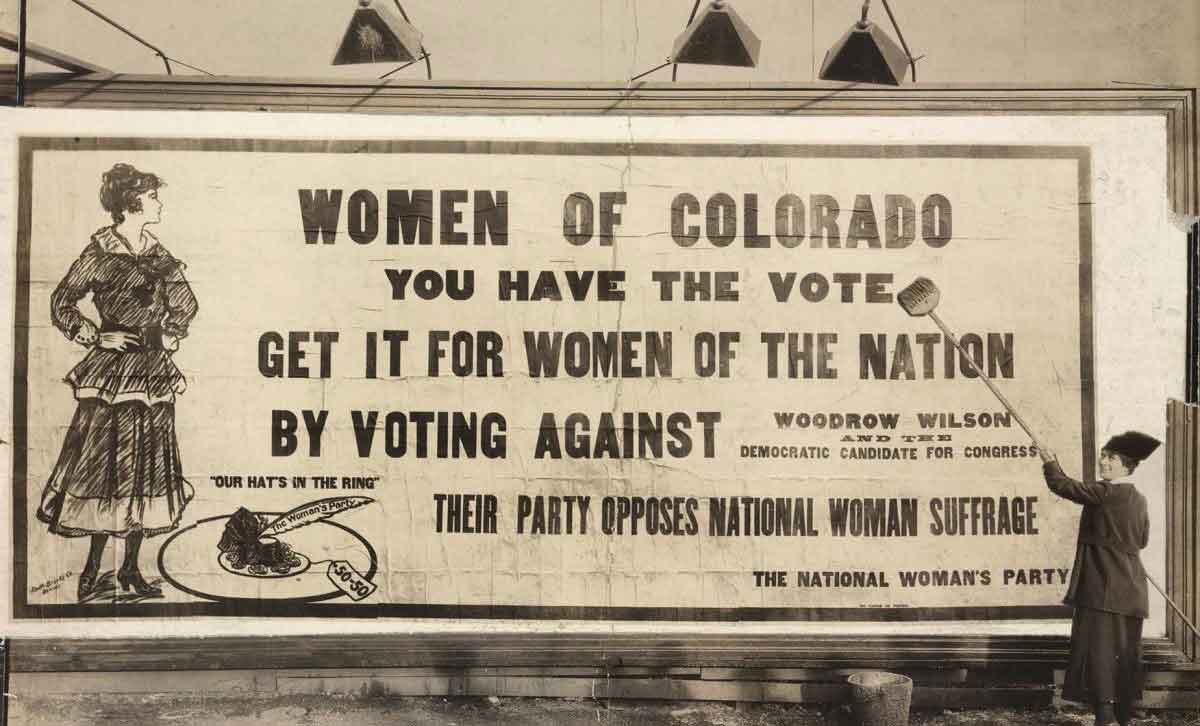Colorado Leads the States in Women’s Suffrage
Women Win the Vote in Colorado!
On November 7, 1893, Colorado women won the right to vote. The count was 35,798 men for and 29,551 men against, making Colorado the first state to enfranchise women through an election. A lot had changed in the 16 years since a similar referendum 1877 failed by a two-to-one margin. But this enlightened perspective was not universal. La Plata County’s male voters rejected the referendum by a vote of 791 to 397, a nearly two-to-one margin.
Along with the persistence of national and state suffragists, Colorado’s male voters seemed to think that women’s suffrage would not threaten their power. Indeed, with a few minor exceptions, the state's legislature remained almost totally controlled by men for a considerable time. Significant political power for women came grudgingly over time, but it did come.
Suffrage is a term used to denote the right to vote. Women working for their right to vote in the 19th and 20th centuries were often, with an intent to demean, called “suffragettes,” using the diminutive form of the word as a kind of sexist insult.
The mantle of being “first” can be tricky and descend into various technicalities, such as whether the area in question was a territory or a state and whether there was total or partial suffrage. New Jersey’s 1776 Constitution enfranchised its “inhabitants,” although various conditions effectively limited that right for women. Further, in 1807, the state’s legislators had amended the constitution to restrict the vote to tax-paying, white male citizens.
Two of Colorado’s neighbors, Wyoming and Utah, enfranchised women in 1869 (Wyoming) and 1870 (Utah), but neither was a state at the time. Go here for a more thorough discussion of the progress of women’s suffrage across the U.S.
Regardless of claims to be first, women’s suffrage was part of Colorado’s earliest discussions surrounding governance and drafting a state constitution in 1875-76. An early breach in the male stranglehold on voting was allowing women to vote in school board elections with the promise to hold a referendum in 1877 regarding full suffrage—a referendum that went down by a two-to-one margin. According to ColoradoEncyclopedia.org, “Most Hispanos in southern counties opposed women voting, as did men in Denver and mountain mining towns. Dismissed as “bawling, ranting women, bristling for their rights” by Presbyterian preacher Rev. Thomas Bliss, women found that most Colorado men held fast to the past.”

